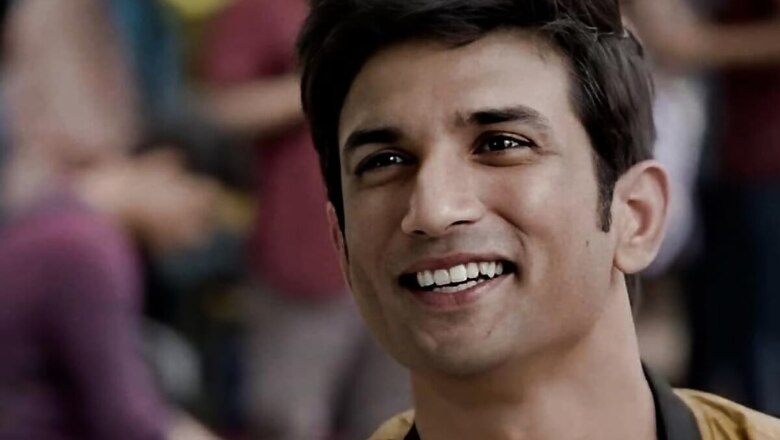
views
In the months following Sushant Singh Rajput's tragic death in June, three more suicide cases were reported from the entertainment industry.
On August 7, 2020, news headlines announced the alleged suicide of Bhojpuri actress, Anupama Pathak (40). Two days before she passed away, television actor Samir Sharma (44) was found dead at his Malad flat, where he lived alone. A month prior to Sharma's death, Telugu actor, Maddela Sabeera (42) alias Rekha, reportedly killed herself due to surmounting debt. However, the alarming rise in the number of suicides began much before Rajput's demise.
As the COVID-19 pandemic brought the production of over dozens of movies, TV shows, and ad films to a screeching halt in late March, the fear of unemployment, financial anxiety, and the prospect of uncertainty about future work gnawed at the minds of many individuals working in the respective industries. The set makers, spot boys, and daily wage earners were the first ones to face up realities, even as most celebrities actively peddled videos of dance routines, exercise, and cooking on social media, and presented a curated version of their lockdown life online.
Their seemingly perfect posts, however, suddenly gave away the ugly realities and struggles of the so-called celebrity life, when a 25-year-old TV actress, Preksha Mehta left behind a heart-wrenching note on her Instagram Story right before ending her life. "The worst thing is when the dreams die," she wrote. Mehta's death came on the heels of another actor, Manmeet Grewal's suicide in Mumbai, who reportedly took the extreme step because of financial issues.
Shattered dreams, and a dead star
In a heartbreaking video posted online in June, Begusarai actor Rajesh Kareer implored his fans for monetary help, so that he could return to Punjab and seek new employment. In the same month, TV actor Shardool Kunal packed his bags and left for his hometown after he could not support himself without any income in the city of dreams.
“I was shooting 'Fallen' with Reema Kagti when the lockdown happened, so there was and still is insecurity that if this project gets canceled, I'll be out of work," says actor Gulshan Devaiah, before adding, "I've been in projects where the plug was pulled just 10 days before the shoot. Sometimes, they even ask you to return the payment. It's all very insecure.”
The fear of financial instability, coupled with the restrained socialising amplified many people's anxiety during the pandemic, says Delhi-based psychologist Dr. Manish Jain. "However, the fundamental difference between normal people and celebrities when they face financial trouble is that, while normal people can tone down on their expenditure and can afford to not worry about their 'status', for celebrities, it is a very difficult task," he says.
And then came the news of Sushant Singh Rajput's death on June 14, 2020, which was initially declared to be a suicide. "The tipping point for many of my patients during the pandemic was Rajput's death," recalls Jain.
"During the lockdown, as it is many of these patients were unable to come in for follow-ups, and missed their medication, and there was also the additional pressure of not being able to go out, and hang out with their friends, which normally acts as a stress buster. At such a difficult time, the news of someone's death, especially someone they loved and revered, who appeared to be active, social, and a fitness freak hit many patients doubly hard," Jain adds.
A study shows that globally close to 8 lakh people die by suicide every year, which means one person dies every 40 seconds because of suicide. The digits are almost twice the number of homicide that happens each year. But, a celebrity death is always different, because it not only affects the family but also the public in general. The seismic wave of reports concerning Rajput's death, which was perceived as a suicide initially, traveled through the country in no time on June 14, and in the days that followed many young fans, unfortunately, emulated the actor's footsteps and took their own lives.
Two minor girls, one from Patna and the other from Port Blair died by suicide, after hearing about the actor's death. A 15-year-old boy also allegedly killed himself after he could not take the incessant bullying that he was subjected to because of his “feminine mannerisms.” His younger brother told the media, that a day before his death, he had said that if Rajput can take his own life, so can he.
Whether Rajput took his life or not is for the CBI to investigate, but the actor's death left a huge impact on those from his own industry too. "Sushant's death was such a tragedy and what I'm really doing right now is taking it very personally and looking into my life and reassessing all my moves, all my hustles and how I'm going to go about my career," says Devaiah.
"I may have to see a very dark day at some point but I want other options, assuming if it was a suicide. I'm very confident that I won't have to choose that option. But, you never know. One just has to be okay with failure and that's what I'm trying to deal with," he adds.
Adding more stigma to mental illness
Devaiah, who has been in therapy for a while, says that seeking professional help often provides people with insights and perspective about their own life which they may not be in a position to understand themselves.
“One has to really know how to look for depression because often times it may not be evident from people's looks. I have seen people who have deep depression and are under heavy medication. Yet, they look perfectly fine. There is no particular look that people with depression sport. Sometimes, one can function normally but still feel hollow." he adds.
However, amid the cacophony of television debates, social media buzz, and conspiracy theories surrounding Rajput's death, any nuanced discussion on depression, anxiety and other chronic mental illness, or a proper public discourse on mental health seems like an impossibility.
Rajput's acquaintances have so far peddled obnoxious notions about the actor's mental health on national television. Some said if he were in “real” depression, he couldn’t have delivered a film like Chhichhore, which talks about never giving up. While others claimed Sushant was “a very balanced” individual who would get upset at times, but never depressed.
The social media, which had initially poured thousands of hearts on Deepika Padukone's doctrine—‘Repeat after me: Depression is an illness,’ trolled the actress mercilessly for the same assertion and accused her of “selling a disease.”
“I had really thought that finally, people would start taking mental health seriously. That we'd be able to discuss mental disorders more openly and in-depth. But, clearly, (I was mistaken)," says actress Maanvi Gagroo.
"In fact, it isn't just the entertainment industry though, if you see the condition of behavioral institutes in our country, you'll understand just how little importance we give to mental health as a society. So honestly, I don't know the way out of this," she adds.
Ever since the pandemic set in, Gagroo has been oscillating between feeling secure and thankful to getting bouts of anxiety that characteristically comes with an uncertainty of the future. But, she has continued to talk about mental health at a personal level -- from her social media accounts, and among friends and family, despite the tone-deaf dialogue that’s currently ongoing around Rajput’s death.
Although few actors and industry people have been vocal about their mental health struggles in more recent times, conversations about mental health are still very rare in the entertainment industry.
“There is a strong stigma associated with psychological help when it comes to Indian celebrities. They worry people would think they are weak, or worse, that they are mad if they say that they have a mental illness like depression,” says Dr. Anil Sethi, Life coach & wellness expert.
“Another major reason they refrain from discussing their mental health issues is that they suspect that they would not be able to get work if industry people found out that they are going through mental issues. But, internationally, if you see, Hollywood stars do not carry such stigma on their shoulders, and neither does their society judge them for seeking out psychological help,” he adds.
Mental health and the struggles of celebrity life
While the phrase ‘Struggles of celebrity life’ may sound like an oxymoron, because we automatically assume that celebrities are successful, powerful and therefore, lead a happy life, without any struggles, the current pandemic has revealed otherwise.
“One of the things we seldom talk about when it comes to celebrities is how problematic their lifestyle generally is. They work round the clock and are often chronically sleep-deprived. For people with such hectic schedules, counseling can be beneficial for mental peace, but because of the stigma, most don’t opt for it,” says Sethi.
“I feel our industry takes great pride in working non-stop,” says actor Nakuul Mehta, who has had a tough time navigating through “this machine style of working” in the television industry.
“In my early days of Television, I worked almost 30 days a month, 7 days a week… A lot of people looked at me with surprise when I negotiated for work 6 days a week with annual leave. I feel this is so rare in our industry because nobody really cares about mental health. In a factory setting, the output takes precedence over everything else.” Mehta adds.
Also, in an industry that usually judges people’s worth by their box office successes and TRPs, it is important to remember that success isn’t a marker for mental peace, and surely not for happiness, says actress Shriya Pilgaonkar.
“When we see stars like Deepika Padukone come out and share her story, it gives us an insight into the fact that fame, success, and power does not guarantee any kind of mental peace,” she says.
The only way we can fight these false notions is by increasing awareness, by sharing our stories; and talking about our experiences so that we can draw courage from each other’s shared struggles, Pilgaonkar adds.
No matter how successful one is, the instability of this profession is unsettling, irrespective of whether there is a pandemic raging across the world, or a beloved star had lost his life, says casting director and actor, Abhishek Banerjee.
“The wait is a constant in an actor's career. Wait for someone to notice you for that first break. Wait for the role which gives you recognition. Wait for the next big part. Wait till you are famous enough to have a career. Once you have a career keep waiting for those good parts as there are many ordinary offers,” he says.
The film industry isn’t the most welcoming place either, especially for those who don’t have a famous surname. Actor Namit Das recalls how vulnerable he felt coming into the industry as an outsider.
“At an earlier stage in my career when I did not have a godfather in the industry, I used to feel quite vulnerable. I used to feel that I had no one backing me, and this place can be very competitive. But one has to have faith in one's talent. I think I used my insecurities and vulnerabilities in my work, rather than letting it affect my mental health,” he adds.
The mental toll of keeping up appearances
Apart from the inherent instability, with the advent of social media, there's now a heightened pressure to stay relevant through online channels. These platforms have completely redefined the concept of celebrity, and the role play and the charades don’t just end onscreen now, but actors and actresses have to continuously persevere to project a certain image of themselves on these channels too. Some hire PR agencies for that. For those who can’t, there is the added stress of generating content consistently, staying relevant, attracting followers, and likes.
“It's silly but you do think of all these things. I'm a fashion graduate, and yet I would stress over what clothes to wear. We are all constantly trying to control our perception and it's tiring,” says Devaiah.
“One can’t live in these false realities, it isn’t healthy for anyone,” says psychologist, Priyanka Varma, who believes that neither the celebrity nor their followers gain anything from “this game of perception and keeping up appearances.”
“Viewers, for instance, see curated images of celebrities and their lives with aspiration. These photos project an idea of what they want their own lives to look like, and in case their real life is far removed from these ideas (which it is, for most people), it creates a form of discontent, dissatisfaction,” says Varma.
Varma further reiterates that if Rajput’s death and the loud misinformed conversations about mental health have taught us anything, it is that we have to be very careful about our own mental health, and be non-judgemental towards those who have any mental illness.
Having mental health issues like depression or bipolar disease doesn’t make anyone weak or a lunatic. It just makes them human, the psychologist concludes.
This news piece may be triggering. If you or someone you know needs help, call any of these helplines: Aasra (Mumbai) 022-27546669, Sneha (Chennai) 044-24640050, Sumaitri (Delhi) 011-23389090, Cooj (Goa) 0832- 2252525, Jeevan (Jamshedpur) 065-76453841, Pratheeksha (Kochi) 048-42448830, Maithri (Kochi) 0484-2540530, Roshni (Hyderabad) 040-66202000, Lifeline 033-64643267 (Kolkata).














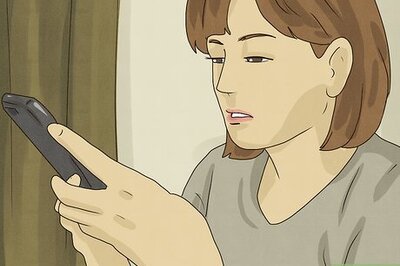
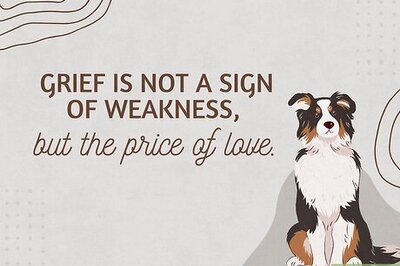
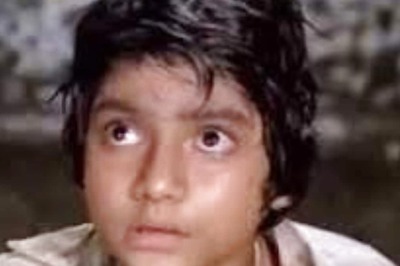
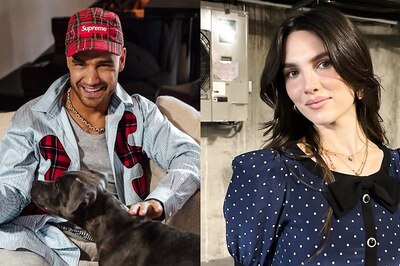
Comments
0 comment